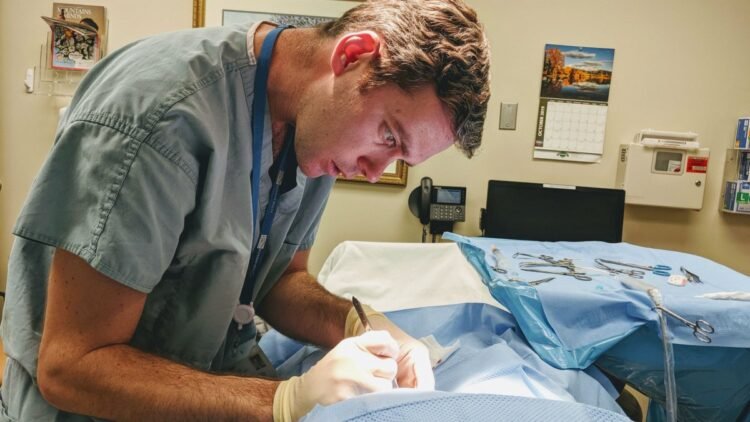
Vasectomy is generally safe, don’t be scared a former Medical Director at the Ridge Hospital, Dr Thomas Anaba, has said, as he encourages men to opt for the procedure as a family planning method.
Allaying fears on side effects of the procedure, Dr. Anaba said, “Side effect of vasectomy will happen if the surgeon mistakenly ties your blood vessel going down to the testicle … but It can be done in less than an hour then you get up and go home”
Vasectomy is a minor surgery done to block sperm from reaching the semen that is ejaculated from the penis.
Sperms are still produced after vasectomy, but they are soaked up by the body.
He said those who insist on not having the procedure done can opt to observe the natural way of preventing unwanted pregnancy
“We have natural methods that you can apply to. Try to know the woman’s cycle very well”
“If her cycle is very stable, you will know the days that she is in danger or she is fertile for fertilization then you try to avoid these days.” She said on 3FM’s Ideal Home programme.
How vasectomy works
According to experts, Sperm — the microscopic cells that join up with an egg to cause pregnancy — are made in your testicles. Sperm leaves the testicles through two tubes called the vas deferens, and mixes with other fluids to make semen (cum). The sperm in your semen can cause pregnancy if it gets into a vagina.
A vasectomy blocks or cuts each vas deferens tube, keeping sperm out of your semen. Sperm cells stay in your testicles and are absorbed by your body. Starting about 3 months after a vasectomy, your semen (cum) won’t contain any sperm, so it can’t cause pregnancy. But you’ll still have the same amount of semen you did before. There just won’t be any sperm in it.

Vasectomies don’t change the way having an orgasm or ejaculating (cumming) feels. Your semen (cum) will still look, feel, and taste the same after a vasectomy — it just won’t be able to get anybody pregnant.
















